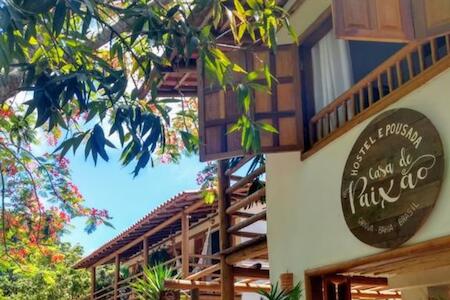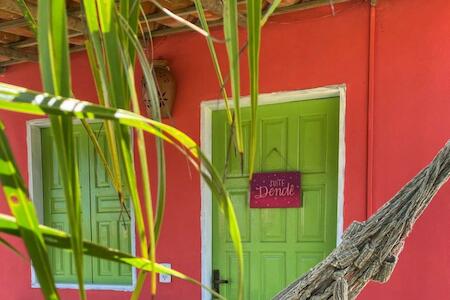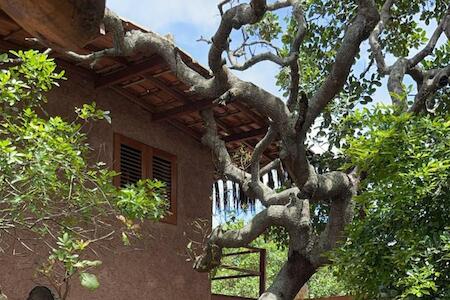Looking for budget stays in Caraiva? This section is designed to save you time, money, and unnecessary stress. We've got insider tips to help you find affordable hostels and the cheapest places to stay in Caraiva.

Caraiva is a small, remote village in Brazil that is one of the least “developed” in the country. There are no roads here, no cars, and almost no electricity. There are hostels and villas in the village and around it, but, for the most part, even these use candles because of the unstable electricity. The village is a great place to visit because of the opportunity to get in touch with nature and relax without technology.
The village of Caraiva can be reached via a traditional taxi, which is a donkey-pulled cart with the word painted its side. The village is right by the sea, with a golden, sandy beach and a feeling that you are away from civilization. Even at the hostels, it feels deserted, quiet, and relaxed. The homes in the village are built right on the beach. Inside the village, there is a small church and square, as well as a single restaurant.
One of the best experiences to have in Caraiva is with the people, especially the native Pataxo Hahahae people. They live on a reservation called the Caramuru-Paraguacu Reserve. You can rent a horse and ride here from your hostel in the village. The reservation has many sloths and other animals living in harmony with the 54,000 natives in the forest.
The entire village feels like a throwback to ages past. The hostels and villas are furnished very simply, with small gardens, air conditioning in some, and hot water. A significant benefit of staying in Caraiva is the food: the locals make a vegetarian black bean stew paired with fresh seafood like fish and prawns, along with the capirinha and caipiroska, which are lemony, vodka-based drinks.
Last, but not least, you should visit Silvinha, a woman on Espelho beach who has three patio tables and makes lunch for you when you reserve it. These lunches, eaten while staring out across the gorgeous beach, make Caraiva a great place to visit.
Written by Travel Expert Caraiva
 Jakob Lombardi
Jakob Lombardi

